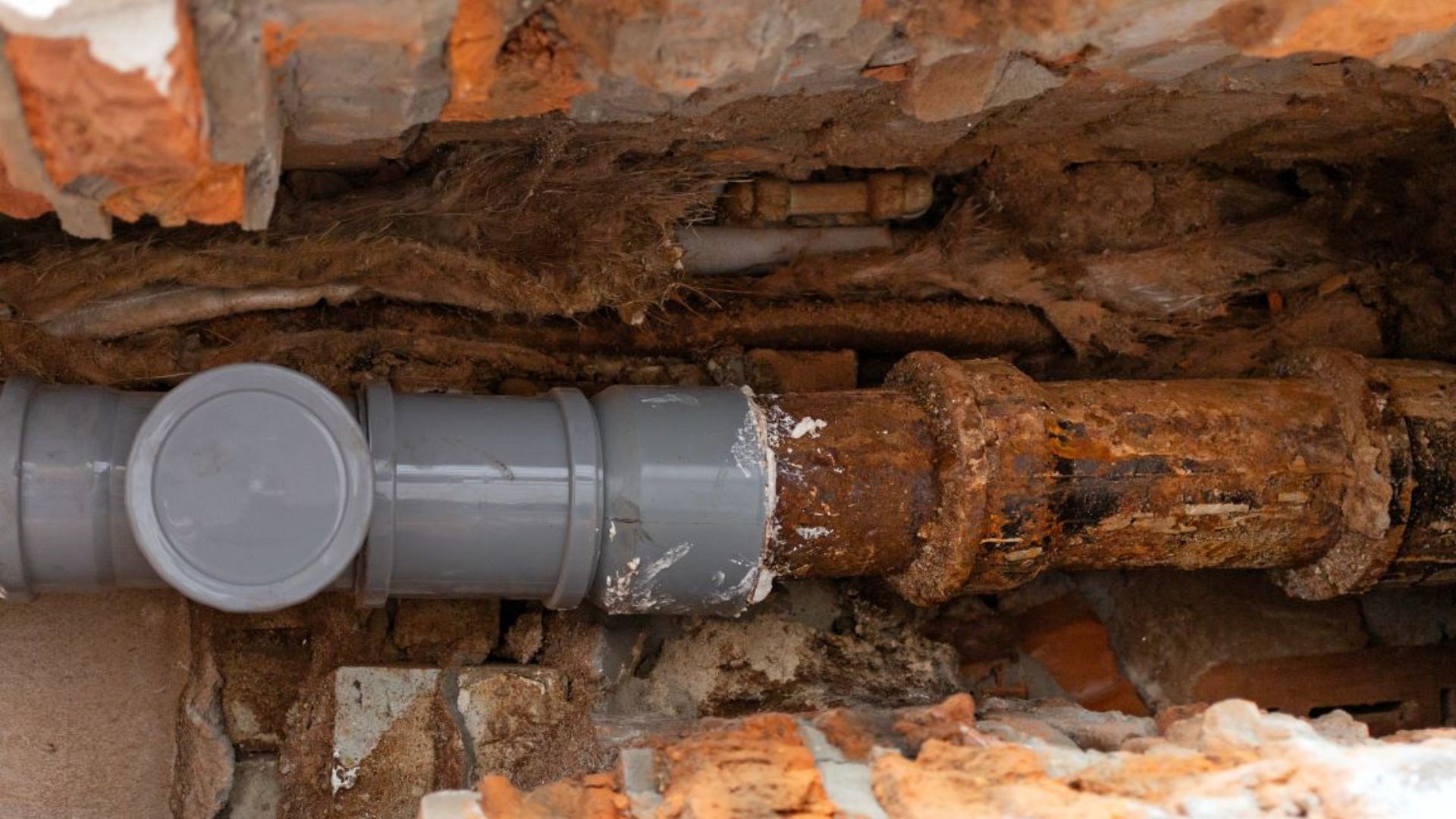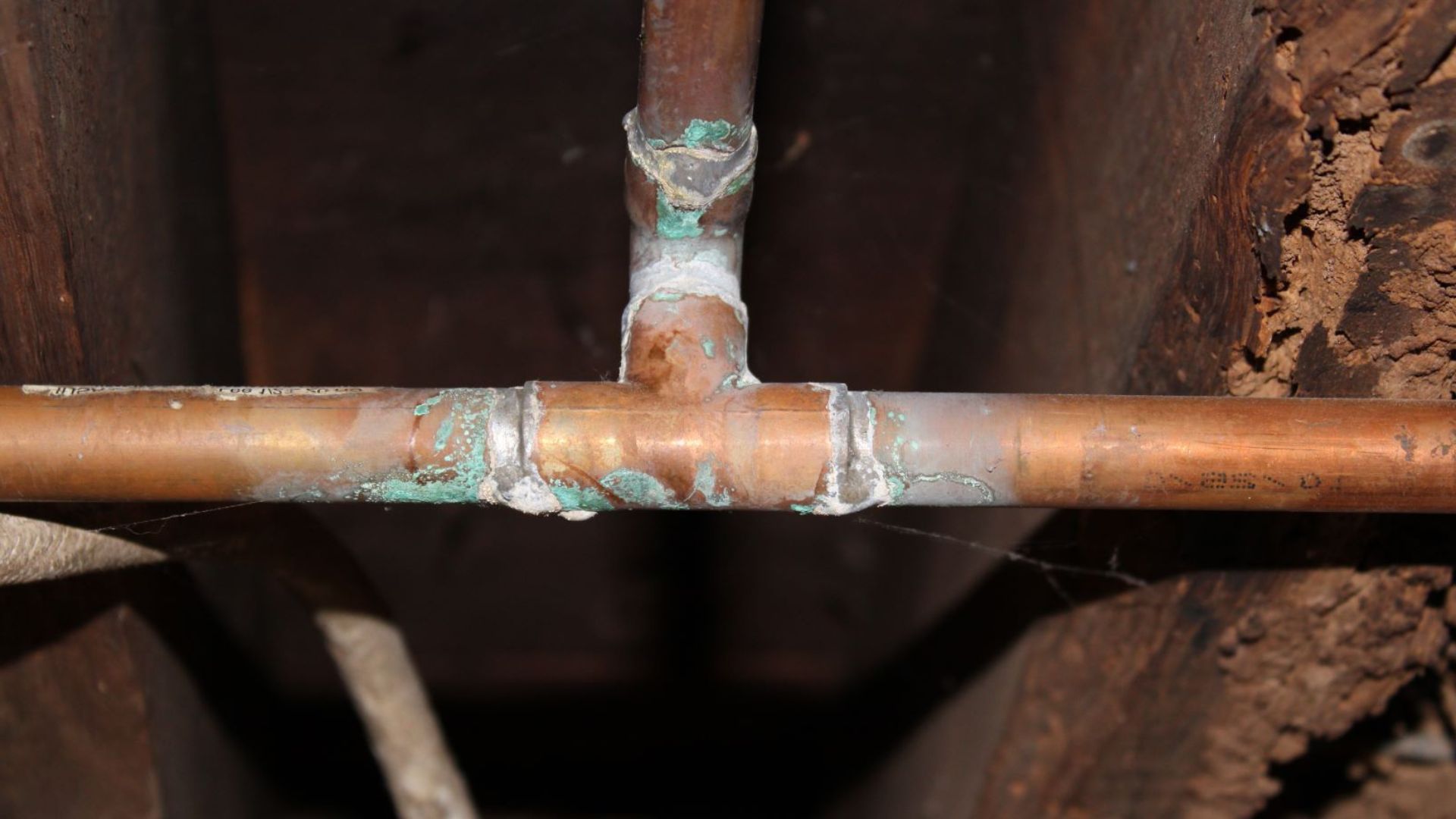Is your plumbing quietly destroying itself without you even knowing?
Pipe corrosion is one of those hidden threats that can sneak up on both Australian households and businesses. At first glance, your pipes might look perfectly fine, but inside, a slow and steady decay could be eating away at them.
Left unchecked, corrosion can lead to serious damage, from minor leaks to full-blown bursts that cost thousands to fix. It's not just about inconvenience either; corroded pipes can impact water quality, property value, and even health.
Understanding what causes pipe corrosion is the first step to preventing disaster. In this blog, we'll uncover how corrosion gets started, often without a single warning. We'll also look at the types of damage it causes - some obvious, others not so much.
You'll learn the early warning signs you should never ignore and, most importantly, how to tackle corrosion before it turns into a plumbing nightmare. Whether you're managing a family home or a busy commercial property, knowing how to deal with pipe corrosion can save you a lot of trouble down the track.
What is Pipe Corrosion?
Pipe corrosion is a slow but steady process where piping materials break down due to chemical reactions, physical forces, or environmental conditions. When metal pipes like copper pipes or galvanised steel start to deteriorate, they become corroded pipes - and that's when the real trouble begins.
Plenty of factors contribute to pipe corrosion. Water quality plays a huge part - acidic water, hard water, or water packed with mineral deposits can speed things up.

Soil conditions, chemical reactions like oxidation, and old, tired existing pipes don't help either. Even something as seemingly minor as improper installation or dodgy utility pole grounding wires can accelerate the problem.
In Australia, we've got extra challenges too. Homes along the coast face salt exposure, which significantly affects piping material. Combine that with high hot water temperatures and microbiological contamination, and you're looking at rapid corrosion and compromised water quality.
Understanding pipe corrosion is key to keeping things flowing smoothly. Staying on top of your water chemistry, using preventative maintenance, and choosing corrosion inhibitors and corrosion-resistant materials can make a massive difference to the lifespan of your plumbing system.
The Different Types of Pipe Corrosion
Uniform Corrosion
This type leads to even thinning across the pipe walls, slowly weakening household water lines over time.
Pitting Corrosion
Tiny, deep cavities form in the pipe's surface, often creating sneaky pinhole leaks, especially in copper pipes.
Galvanic Corrosion
Mixing dissimilar metals, like linking copper pipes to steel, can trigger galvanic corrosion without proper safeguards.
Crevice Corrosion
This one pops up in tight spots like joints or fittings where water tends to sit still, causing corrosion buildup and blocking water flow.
Microbiologically Influenced Corrosion (MIC)
Nasty corrosive bacteria get to work here, eating away at the protective layer inside your pipes and speeding up decay.
Adding a few real-world photos or simple diagrams showing corroded pipes or galvanic corrosion examples would make spotting these problems a lot easier. Helping people recognise the early warning signs can save heaps of stress (and cash) down the line.
Effects of Pipe Corrosion on Plumbing Systems
Structural Damage
As the pipe walls get thinner, the risk of leaks or even full-blown bursts in hot water lines or cold water pipes goes through the roof.
Water Contamination
Rust, dissolved oxygen, and bits of metal can end up in your water supply, leading to compromised water quality and potential health risks.
Reduced Water Pressure
When corrosion buildup and mineral deposits clog up your pipes, you'll notice the water flow taking a serious hit.
Increased Repair Costs
Ignoring early signs of corrosion can turn a small plumbing job into a major, wallet-draining disaster.
Insurance Implications
Here in Australia, failing to keep your plumbing in good nick can really mess with home insurance claims if corrosion or water damage takes over.
Miss the early warnings, and you might find yourself facing increased premiums or trouble with coverage. Staying on top of maintenance isn't just smart - it's necessary.

Signs Your Pipes Might Be Corroding
Visual Signs: Look out for discoloured water, weird stains, flaky bits, or corrosion buildup around your water pipes, especially near joints.
Water Quality Changes. If your water starts tasting funny, smells a bit off, or looks rusty, copper pipe corrosion or galvanic corrosion could be creeping in.
Performance Issue: Low water pressure, constant leaks, and ongoing plumbing headaches often scream 'corroded pipes'.
Sounds: Weird gurgling, banging, or clanking noises coming from your household water lines could be a sign of hidden corrosion.
Tip: If you suspect pipe corrosion, don't just check the obvious spots. Look under sinks, behind washing machines, and in basements - catching problems early can save you a lot of trouble.
Acting fast when you spot these signs can protect you from bigger headaches and help you avoid costly repairs down the track.
How to Address and Prevent Pipe Corrosion
Early Intervention: Hire licensed plumbing professionals for regular checks to catch and prevent pipe corrosion before it becomes serious.
Material Upgrades: Old metal pipes? Time to upgrade to corrosion resistant materials like PVC or PEX for a longer-lasting plumbing system.
Water Treatment: Installing a water softener or a proper water treatment setup can balance out water chemistry issues caused by hard water, acidic water, or mineral deposits.
Protective Coatings: Adding protective linings or coatings inside your pipes creates a solid protective layer against dissolved oxygen and other corrosive elements.
Regular Maintenance: Make a habit of scheduling professional inspections for your hot water systems, utility pole grounding wires, and water heater units. It's the best way to stop corrosion buildup before it ruins your entire plumbing system.
Using corrosion inhibitors, ensuring proper installation, and opting for corrosion-resistant materials means fewer emergencies and a healthier plumbing setup.
Protect Your Home from Hidden Plumbing Dangers
Pipe corrosion isn't just a minor annoyance - it can cause serious damage before you even realise what's happening. Staying ahead of causes like dissimilar metals and high water velocity, and committing to preventative maintenance, can save you a fortune in repairs.
Fixed Today is here to help. Our team knows all about understanding pipe corrosion, preventing corrosion, and handling those hidden corrosion problems that catch homeowners off guard. Our leaking pipes services are reliable, fast, and tailored to suit your needs.
Don't wait until your water turns brown or your pressure drops to a dribble. Let our plumbing professionals inspect your household water lines, apply protective coatings, and replace any dodgy piping material breaks before they cause chaos.
Protect your home, safeguard your health, and steer clear of expensive plumbing disasters. Reach out to Fixed Today - because preventing corrosion is always smarter than scrambling to fix it once it's too late.














